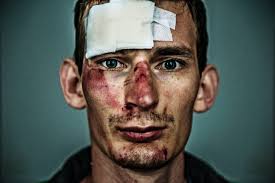From Impact to Recovery: Navigating Facial Trauma After Accidents

Facial trauma resulting from accidents can be both physically and emotionally challenging for survivors. Beyond the visible scars, it can profoundly impact one’s self-image, confidence, and overall quality of life. Navigating the journey from the initial impact of the accident to eventual recovery involves not only medical treatment but also psychological support and self-care.
In this blog post, we’ll explore the various aspects of facial trauma, the road to recovery, and strategies for coping with the aftermath.
Understanding Facial Trauma:
Facial trauma encompasses a range of injuries, including fractures to the bones of the face, lacerations, soft tissue injuries, and damage to the eyes, nose, and mouth. These injuries can result from car accidents, falls, sports injuries, assaults, or workplace accidents. The severity of facial trauma varies depending on the force of the impact and the structures involved.
The Immediate Aftermath:
Immediately following an accident, the primary concern is stabilizing the patient and attending to any critical injuries. Once the patient’s condition has been stabilized, healthcare professionals in Richmond, Indiana, assess the severity of facial trauma and devise a treatment strategy. This could entail various procedures, including maxillofacial surgery to mend fractures, suturing wounds, and rectifying any harm to soft tissues or nerves.
FOR INFORMATIVE CONTENT VISIT.. : Hot Air Balloon Rides
Physical and Emotional Impact:
Beyond the physical pain and discomfort, facial trauma can have profound emotional repercussions. The face plays a central role in how we perceive ourselves and interact with others. Injuries that alter one’s appearance can lead to feelings of self-consciousness, embarrassment, and depression. It’s not uncommon for survivors to struggle with anxiety, post-traumatic stress disorder (PTSD), or body image issues following facial trauma.
The Road to Recovery:
Recovering from facial trauma is often a gradual process that requires patience and perseverance. Depending on the extent of the injuries, it may involve multiple surgeries, rehabilitative therapy, and ongoing medical care. In addition to physical healing, addressing the emotional impact of facial trauma is essential for holistic recovery.
Psychological Support:
Psychological support is a critical aspect of recovery for individuals dealing with facial trauma. Counseling, support groups, and therapy can help survivors cope with emotional challenges, rebuild self-esteem, and develop healthy coping mechanisms. Survivors need to acknowledge their feelings and seek professional help if needed.
Coping Strategies:
While the road to recovery may be long and challenging, several coping strategies can help individuals navigate the aftermath of facial trauma:
- Self-Care: Prioritize self-care activities that promote physical and emotional well-being, such as getting adequate rest, eating a balanced diet, and engaging in relaxation techniques like deep breathing or meditation.
- Stay Connected: Maintain connections with friends and family members who offer support and understanding. Sharing your experiences and feelings with trusted individuals can help alleviate feelings of isolation and loneliness.
- Focus on What You Can Control: While some aspects of the recovery process may be beyond your control, focus on the things you can influence, such as following your healthcare provider’s recommendations, adhering to your treatment plan, and practicing patience and perseverance.
- Set Realistic Goals: Break down your recovery goals into manageable steps and celebrate small victories along the way. Recognize that healing takes time and that progress may be gradual.
- Seek Professional Help: Don’t hesitate to seek professional help if you’re struggling to cope with the emotional impact of facial trauma. Therapists, counselors, and support groups can provide valuable guidance and support.
In Conclusion
Facial trauma can have a significant impact on both the physical and emotional well-being of survivors. Navigating the journey from the initial impact of the accident to eventual recovery requires a comprehensive approach that addresses both the medical and psychological aspects of trauma. By seeking appropriate medical care, accessing psychological support, and practicing self-care, individuals can rebuild their lives and regain a sense of confidence and resilience in the face of adversity.



